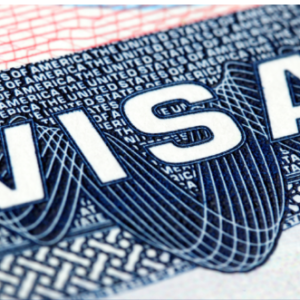Introduction: Why Working Abroad Is the Dream
So, you’re daydreaming about living in a foreign country, working a job you love, and exploring new cultures. But there’s one tiny hiccup: you have no experience. Don’t worry—it’s not as impossible as it sounds. In this guide, I’ll break down actionable steps to land a job abroad, even if you’re starting from scratch. Whether you’re fresh out of school or looking for a career change, this is your ultimate playbook.
Start With Self-Assessment
Before jumping into applications, take a moment to reflect on your skills, strengths, and interests. Even without direct work experience, you have qualities employers value. Are you great at problem-solving? Do you learn new skills quickly? Write down these strengths—you’ll use them later.
Pro tip: Use free online career assessments to discover roles that suit your personality.
Pick the Right Country
Each country has its own job market and visa requirements. Research which nations are open to hiring foreigners without extensive experience. Some countries are more lenient than others when it comes to work permits for entry-level roles.
Hotspots for first-timers:
- Japan: Great for teaching English.
- United Arab Emirates (UAE): Opportunities in hospitality and customer service.
- Germany: Offers work visas for skilled and semi-skilled workers.
- Australia: The Working Holiday Visa is a great entry point for young job seekers.
Focus on In-Demand Industries
Some industries are more willing to hire candidates without prior experience. Target sectors that value enthusiasm and adaptability over credentials.
Examples of beginner-friendly industries:
- Teaching English as a Foreign Language (TEFL): Minimal experience required if you get certified (more on this later).
- Hospitality and Tourism: Roles like bartending, waiting tables, or front desk jobs.
- Customer Service: Remote positions with global companies.
- Volunteer Work/NGOs: A foot in the door for social impact roles.
Get Certified for Competitive Edge
Even if you lack experience, having certifications shows you’re serious about the role. For example:
- TEFL Certification: A must if you’re aiming to teach English abroad. Many programs are affordable and can be completed online.
- Digital Marketing Certifications: Free courses like Google Digital Garage can help you stand out in remote marketing roles.
- Hospitality Training: Basic certifications in food safety or customer service add value.
Leverage Language Skills
While English is widely spoken, knowing the local language gives you an edge. Don’t worry if you’re not fluent; even basic conversational skills can impress employers. Apps like Duolingo or Babbel are great starting points.
Tailor Your Resume for International Jobs
Your resume is your first impression. Even without experience, you can craft a compelling CV by highlighting transferable skills.
Tips for a standout resume:
- Start with a strong objective statement tailored to the job.
- Highlight volunteer work, internships, or freelance gigs.
- Emphasize soft skills like communication, adaptability, and teamwork.
Bonus: Use free templates from platforms like Canva to create a visually appealing resume.
Build a Strong Online Presence
Recruiters often search for candidates online, so make sure your digital footprint works in your favor.
- LinkedIn: Optimize your profile by adding a professional photo, listing skills, and asking for recommendations.
- Freelance Platforms: Websites like Upwork or Fiverr can help you build a portfolio while earning money.
- Personal Website: Create a simple site showcasing your skills, certifications, and goals.
Network Like a Pro
They say it’s not what you know, but who you know. Networking opens doors, especially for international jobs.
Where to start:
- Join online forums and expat communities (like InterNations).
- Attend virtual job fairs hosted by global companies.
- Reach out to alumni from your school who’ve worked abroad.
Start Small with Internships or Volunteer Programs
If full-time work feels out of reach, internships or volunteering can be your stepping stone. Many organizations offer roles abroad, providing valuable experience and networking opportunities.
Top platforms to find opportunities:
- GoAbroad.com
- Workaway.info
- AIESEC (for youth programs)
Look Into Remote Work Opportunities
Remote work has exploded in recent years. Many companies hire international talent for roles like virtual assistants, content creators, or customer support. This can be a great way to gain experience and eventually transition to an on-site role abroad.
Resource to explore remote work: Remote.co – A hub for remote job listings.
Be Open to Entry-Level Roles
You might not land your dream job immediately—and that’s okay. Accepting an entry-level role helps you get your foot in the door and build experience.
Ace the Interview
Interviews for international roles can feel daunting. Prepare by:
- Researching cultural norms and etiquette.
- Practicing answers to common questions.
- Highlighting your willingness to learn and adapt.
Understand Visa and Work Permit Requirements
Visa rules vary by country and job type. Some employers sponsor work visas, while others may require you to secure one independently. Research the process thoroughly.
Save for the Move
Working abroad often involves upfront costs like travel, visa fees, and initial accommodation. Start saving early to make your transition smoother.
Stay Persistent
Rejections are part of the process, but don’t let them discourage you. Treat each application as a learning experience, refine your strategy, and keep pushing forward.
Conclusion: Take the Leap
Getting a job abroad with no experience might seem like climbing Everest, but with determination and the right steps, it’s entirely possible. Start small, build your skills, and don’t be afraid to take risks. The world is waiting—go make it happen!
FAQs
1. Can I really get a job abroad without experience? Yes, many industries prioritize skills and adaptability over formal experience. Entry-level roles, internships, and volunteering are excellent starting points.
2. How can I fund my move abroad? Save ahead of time, look for jobs offering relocation packages, or start with remote work to build your financial base.
3. What’s the easiest job to get abroad without experience? Teaching English, hospitality roles, and volunteering are some of the easiest options for beginners.
4. Do I need to know the local language to work abroad? Not always, but learning the basics can give you an advantage.
5. Where can I find international job openings? Websites like Indeed Global, LinkedIn, and GoAbroad are great starting points.


